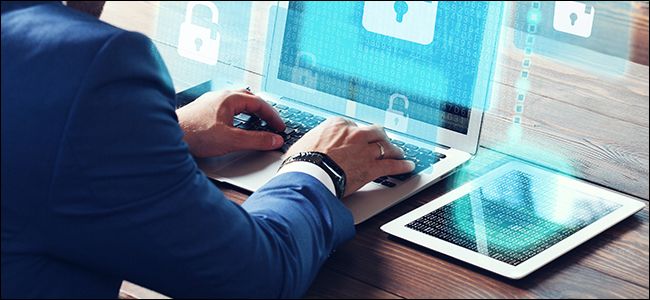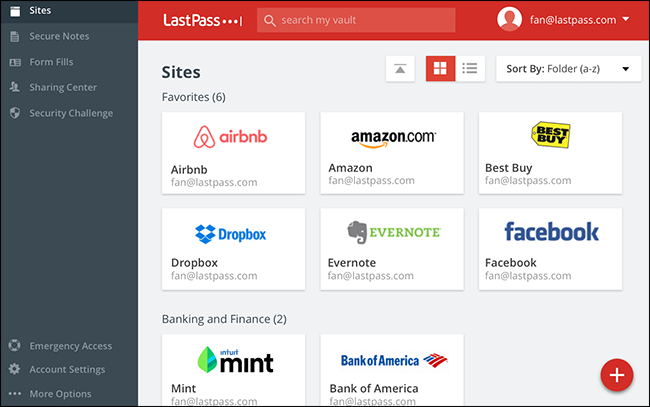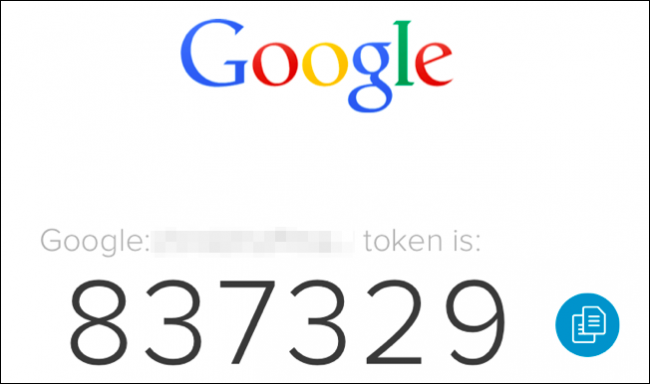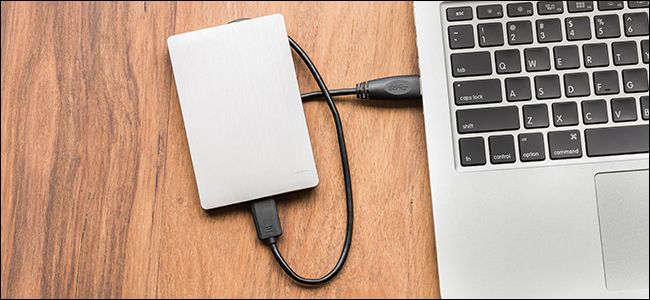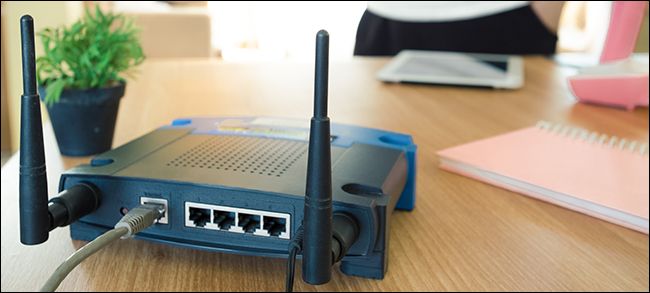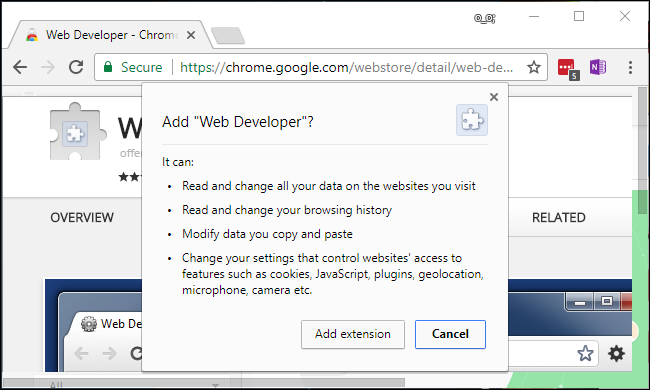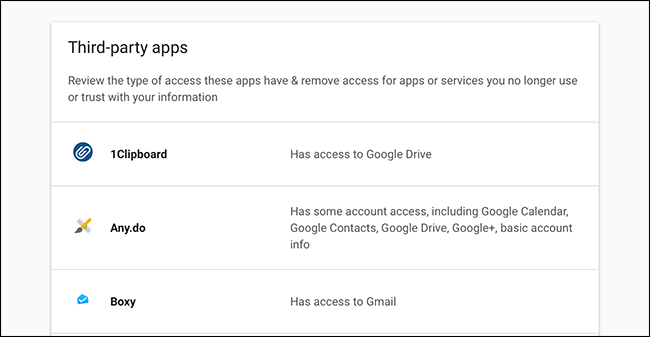Quick Links
If you're a human person who occasionally engages in commerce, hackers are probably targeting you. This year, resolve to do something about it.
You know you need to take better care of your personal information, but you keep putting it off. It's understandable, but this is the year you take your security into your own hands. Here are seven resolutions you can make to lock down your data in 2018. Like going to the gym regularly, it might be annoying to get started, but you'll be better off once you build better habits.
Use a Freaking Password Manager
Re-using passwords is a very, very bad idea. Sure, having the same password everywhere makes it easier for you to remember, but it means that one site's security leak compromises all of your accounts. To stay secure, you'd have to change all your passwords every time any service you use is compromised, which is not feasible.
This is why you need to use a different password for every site, and a password manager can help you do that. LastPass is a popular free choice, but there are some solid options out there that are easy to set up and use.
Stop putting this off. Everything you do online is at risk until you stop re-using passwords, and password managers make doing so simple.
Lock Down Important Accounts With Two-Factor Authentication
Even the most secure password won't completely protect you. That's why, once your passwords are in order, you should also use two-factor authentication wherever it's offered. Two-factor authentication means that if someone does get your a password, they still won't be able to log into your account: they also need a code sent to your phone, which they probably won't have.
Commonly, these codes are sent via text message, but SMS isn't ideal for such authentication because it wasn't built with security in mind. We recommend using an app like Authy instead. It won't take long to set up, and once you do, you won't have to worry about SIM hijacking.
This might sound annoying. Do it anyway.
A lot of sites offer two-factor authentication at this point, and ideally, you should use it wherever it's offered. If that's too much for you, make sure your email address is locked down, because anyone with access to that can reset all of your other passwords easily. Lock down your password manager while you're at it, for the same reason.
Back Up Your Computer (Seriously)
If you store a file on only one hard drive, you're going to lose it. It's a matter of when, not if, the drive will die.
Which is why you need a backup strategy, especially for your irreplaceable family photos and videos. We've talked about the best way to back up your computer, and you should follow that advice, making sure you have at least one remote backup using a service like Backblaze. It's an investment, but one that means you never have to worry about losing your files ever again.
Seriously: You know you should do this, but if you haven't set it up yet, do it now. It only takes 15 minutes.
Don't forget about all the photos and videos stored on your phone, either. Google Photos stores an unlimited number of photos and syncs them from Android and iOS devices automatically. Set it up, or something like it, so that you can access your photos even if you lose your phone.
Backing up your data also gives you a potential defense against ransomware, which encrypts your data and demands you pay to get access back. Instead of paying up you can wipe your computer and restore from your backups.
Update (or Upgrade) Your Router
Your wireless router is the gateway used by your computers, phones, and smarthome devices to access the Internet. You need to make sure it's secure, and that starts with making sure your network is protected by a password with WPA2 encryption---if it isn't, attackers can easily access your home network (yes, even WEP is remarkably insecure).
Thanks to the KRACK vulnerability, however, WPA2 isn't as secure as it used to be. Updating your computers and mobile devices patches the problem for those devices, but some smarthome devices may not be patched yet.
The simplest way to lock everything down is to update your router, so resolve to get that done soon. If there aren't updates out there for your router, consider upgrading your router to a new model---it's probably been a while since you have, and the newer ones offer lots of features that can improve your Wi-Fi signal speed and strength.
Clean Out Your Browser Extensions
Most users collect a lot of browser extensions over the year, but it turns out those browser extensions are a privacy nightmare. It's relatively common for sketchy companies to buy up popular browser extensions and push malware to them using automatic updates.
This year, resolve to regularly clear out your browser extensions, deleting the ones you don't use regularly. It'll go a long way toward keeping your information safe.
Remove Unused Third-Party App Access From Google, Facebook, and Other Accounts
Similarly, your Google or Facebook account can link up to third-party apps so they can access things like your calendar, contacts, or other info. But most of us forget about services we've signed up for and stop using. The services haven't forgotten, however, and may still be accessing your data regularly---which is a problem if they ever get hacked, sold to nefarious companies, or just start doing sketchy stuff.
That's why you should regularly review and remove unused third-party app services. You can scroll through and remove apps you're no longer using, keeping them from accessing your data.
Encrypt Your Computers and Phones
If someone has access to your computer, they can access all your data---even if they don't know your password. That is unless your computer's hard drive is encrypted. It is the most surefire way to protect your information against theft.
Happily, in 2018 this is a quick resolution. You can enable full disk encryption on Windows easily enough, and encrypting your Mac's hard drives isn't difficult either. Your iPhone and iPad are encrypted by default, assuming you have a PIN, and encrypting your Android phone is also simple to do (many new ones also come encrypted out of the box).
There's no excuse not to do this, and your information will be a lot more secure after you do. Do it! Do it now! It's a simple first step toward locking your data down in 2019.
Image Credits: Den Rise/Shutterstock.com, Joe Besure/Shutterstock.com, Casezy idea/Shutterstock.com

